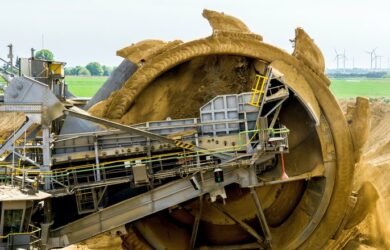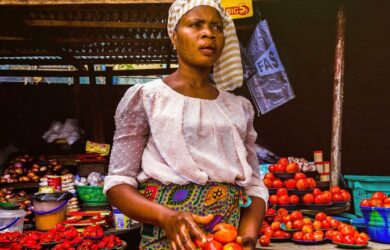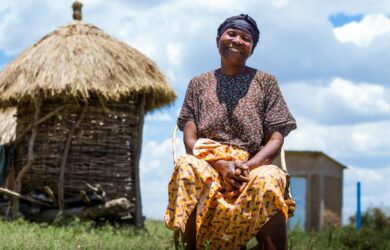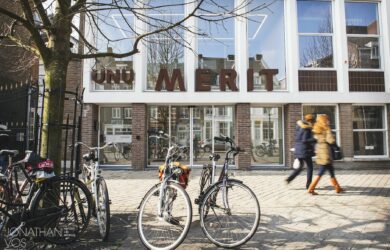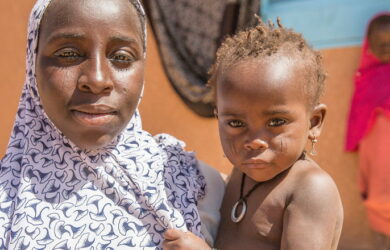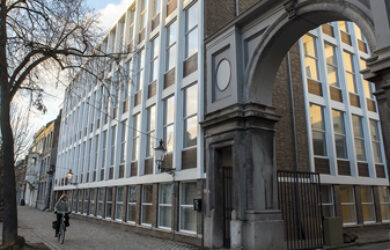Economists of the world unite! How to apply solution designs for societal problems?
21 April 2021
“The Philosophers have only interpreted the world in various ways. The point is however to change it” reads the tombstone of Karl Marx in London quoting one of his works. Of course, this applies not only to the worldly philosophers but to economists as well. And in homage to his call, most of our articles carry at least a paragraph on ‘insights for policy’ or ‘policy recommendations’. Usually our work also starts with some anecdotal evidence on the problem to which the inferences of the article ...
Continue Reading →First Impressions: Publications in March 2021
12 April 2021
When it comes to innovation in mining, what are the challenges and opportunities for Latin America? A new journal article takes the examples of Australia and Canada to highlight high-tech windows of opportunity for equipment and service suppliers along the value chain in Latin America. Youth employment is so important for social justice and sustainable development, but is it truly a priority for policymakers? A new book chapter discusses the hopes and dreams for decent careers of the next genera...
Continue Reading →First Impressions: Publications in February 2021
09 March 2021
Have COVID-19 measures affected food prices in low to middle-income countries? A new paper finds that stricter lockdowns increased food prices among major urban markets, although impacts were also linked to mobility and previous reliance on trade. Read the full working paper here. Is artificial intelligence starting to have an effect on the economy? A new article finds clear evidence of improved labour productivity, especially among small and medium-sized enterprises and the services industries....
Continue Reading →First Impressions: Publications in January 2021
03 February 2021
How can Artificial Intelligence help rural entrepreneurs succeed in business? A new article applies five machine learning techniques, providing new insights into factors related to trust, awareness of current trends, use of media tools, etc. How can private sector initiatives, including venture start-ups and social impact funds, best contribute to the 2030 Agenda? The key, according to a new paper, is to ensure innovations are aligned with public policy impact. How can firms in developing countr...
Continue Reading →First Impressions: Publications in December 2020
11 January 2021
Climate change is already impacting water resources across Africa. But what should African policymakers prioritise: water security or societal challenges linked to water? And how much influence should local communities and the private sector have on decision-making? A new article takes a social innovation perspective in a bid to reinforce the knowledge base for policymaking. The service sector plays a growing role in economies worldwide, despite claims of stagnation. But what is the relationship...
Continue Reading →A deep dive in the silos of sanitation – to break them down worldwide!
11 January 2021
The Sustainable Development Goals Report (2020) notes that we are far from being an open-defecation free world. Since 2015, around 500 million low-cost toilets have been diffused, but still about 2 billion people do not have access to a functioning toilet and about 4.2 billion people are using toilets that cannot be considered to be safely managed. These challenges must be addressed because diarrhoeal diseases are among the leading causes of mortality and morbidity worldwide, especially among yo...
Continue Reading →UNU-MERIT Annual Report 2019
16 December 2020
“The results for 2019 reinforce UNU-MERIT’s reputation in academic and policy circles as a leading institute undertaking societally and policy relevant research — particularly in the economics of innovation and technological change, including the governance of science and technology and on factors limiting the access to knowledge; in policy analysis and evaluation; in the social aspects of growth and development, in particular the policy challenges posed by low levels of development including th...
Continue Reading →First Impressions: Publications in November 2020
01 December 2020
What are the links between migration, remittances and sustainable development in Africa? A new book considers how they relate to economic transformation, knowledge generation, corruption and conflict. It concludes with evidence-based policy recommendations in support of the Sustainable Development Goals. Would a greater focus on human security improve the planning and roll out of the 2030 Agenda? A new paper argues that this lens draws together many disparate tools, while also increasing human r...
Continue Reading →UNU-MERIT’s innovation researchers leading on global ranking of scientists
14 November 2020
In October 2020, a team led by Stanford University’s John Ioannidis published an update of their ranking of the top 2% scientists in the world in the journal PLOS Biology. High up the ranking are several researchers from Maastricht University’s School of Business and Economics, with the innovation-related research at UNU-MERIT strongly represented. MERIT researchers René Kemp (also of the Maastricht Sustainability Institute) and Bart Verspagen rank in the top 0.5% of the career-spanning li...
Continue Reading →First Impressions: Publications in October 2020
11 November 2020
How will artificial intelligence, big data, and open source technologies impact society? What are the opportunities and challenges posed by new technologies and digitisation? A new EU report shows that automation is creating new opportunities for the social economy, mainly in terms of increased reach and effectiveness. When the pandemic finally recedes, how should we rebuild our societies? How can we ensure a less divided and more sustainable world? Drawing inspiration from the Bauhaus movement,...
Continue Reading →Archives
Contact
UNU-MERIT
Boschstraat 24
6211 AX Maastricht
The Netherlands
T: +31 43 388 44 00
Email: info@merit.unu.edu
Boschstraat 24
6211 AX Maastricht
The Netherlands
T: +31 43 388 44 00
Email: info@merit.unu.edu
Partner sites
© 2024 UNU-MERIT | Maastricht University



